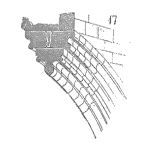
and Probably Already Has
Predictive Maintenance strategy uses condition monitoring techniques to observe plant and equipment health. Based on the equipment’s condition you plan, schedule and perform any necessary maintenance before the breakdown. To use Predictive Maintenance most successfully you must set-up and run your condition monitoring program correctly all the time—predictive maintenance is a never ending strategy that if not done right at every step will still lead to plant and equipment failures. Learn about the many ways your predictive maintenance program will fail and you won’t even know about it!
Keywords: predictive maintenance, condition monitoring, Con Mon












